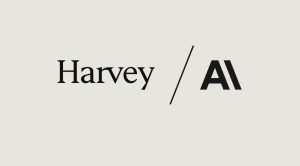Winston Weinberg’s journey from a junior lawyer to the co-founder of a $5 billion legal tech company is redefining the boundaries of innovation in the legal industry.
Through Harvey, an AI-driven platform built specifically for legal professionals, Weinberg has transformed how law firms and corporations manage complex legal tasks.
This case study explores how a deep understanding of legal processes, paired with cutting-edge artificial intelligence, enabled one former solicitor to revolutionise legal operations on a global scale.
Who Is Winston Weinberg and How Did His Legal Career Begin?

Image – Source
Winston Weinberg started his professional life as a junior lawyer, gaining hands-on experience within law firms known for long hours, complex paperwork, and a strict hierarchy.
His early legal career was shaped by repetitive tasks such as document review and compliance checks.
While this routine was typical for many legal professionals, it sparked an early curiosity in him about how legal work could be streamlined.
His legal training provided a solid foundation in regulatory systems, case law, and corporate compliance, which later became critical in understanding the friction points in traditional legal workflows.
What set him apart was his inclination towards solving structural inefficiencies rather than just accepting them.
During this period, he developed a friendship with Gabe Pereyra, a former research scientist at DeepMind.
Their collaboration combined Weinberg’s legal understanding with Pereyra’s AI expertise, leading to the initial discussions that would become Harvey.
What Sparked the Idea Behind Harvey AI?
The creation of Harvey AI was not a coincidence but a direct response to inefficiencies deeply embedded within the legal industry.
Co-founders Winston Weinberg and Gabe Pereyra recognised a growing need for technology that could support legal professionals in a meaningful, transformative way.
Identifying the Inefficiencies in Legal Workflows
Winston Weinberg’s early legal career exposed him to time-consuming processes that dominated the workload of most junior lawyers. Legal professionals often spent significant time on tasks such as:
- Reviewing contracts and compliance documentation
- Summarising lengthy case files
- Searching for relevant statutes and precedents
- Preparing initial drafts of legal arguments and correspondence
While these tasks were vital, they were also repetitive and prone to human error. Weinberg questioned why so many hours were spent on work that could potentially be handled more efficiently with automation.
The Meeting of Legal Expertise and AI Innovation
The turning point came when Weinberg connected with Gabe Pereyra, a former DeepMind research scientist with expertise in machine learning and artificial intelligence.
Pereyra had been working on advanced AI models capable of understanding and generating natural language the very kind of models that were starting to power cutting-edge applications in other industries.
Their collaboration combined two distinct but complementary skill sets:
- Legal domain expertise from Weinberg
- Deep AI and technical knowledge from Pereyra
This unique partnership led to the conception of a platform that could apply advanced language models to specific legal tasks, reducing the time and cost associated with traditional methods.
Building a Legal-First AI Platform
Unlike many AI solutions that try to adapt general-purpose models for industry-specific use, Harvey was built from the ground up with legal professionals in mind. The goal was not to create a generic chatbot, but a specialised tool tailored to:
- Interpret legal documents with high accuracy
- Conduct research across large databases of case law
- Draft preliminary legal content based on firm-specific requirements
Every feature in Harvey was designed to serve a direct legal function. This legal-first approach differentiated the platform in a market filled with horizontal AI tools that often failed to meet regulatory and compliance standards.
Responding to Law Firm Hesitations Around AI
Law firms have traditionally been cautious adopters of technology due to concerns over client confidentiality, ethical compliance, and data sensitivity. To gain early traction, Harvey needed to address these concerns head-on.
Key design considerations included:
- Enterprise-grade security protocols to protect sensitive legal data
- Custom model training to align with legal terminology and logic
- Role-based access control for document handling
By solving these challenges upfront, Harvey was able to gain the trust of leading law firms, making it one of the few AI platforms to be adopted successfully in a risk-averse industry.
Launching with a Clear Product-Market Fit
When Harvey officially launched in 2022, it quickly attracted attention from forward-thinking legal teams. Its ability to automate complex, document-heavy tasks allowed firms to:
- Reduce research time from hours to minutes
- Accelerate contract review and negotiation
- Improve overall operational efficiency without expanding headcount
This clear product-market fit allowed Harvey to scale rapidly from one early client to over 500 within three years.
Its legal-specific capabilities proved especially valuable to firms looking to enhance their service delivery while managing costs more effectively.
How Did Harvey Evolve into a $5 Billion Legal Tech Giant?
When Harvey entered the market in 2022, it was a lean operation with a limited client base. Its first breakthrough came when international law firm A&O Shearman agreed to use the platform.
This early validation helped establish Harvey’s credibility and opened doors to other top-tier clients.
Within three years, Harvey grew to serve over 500 clients. Its client base includes not only law firms but also major corporate legal departments such as KKR and Bridgewater Associates.
Harvey’s growth was enabled by its ability to generate real-time value for clients without disrupting their existing workflows.
Funding played a critical role in scaling operations. The most recent round of investment, co-led by OpenAI, Kleiner Perkins, Coatue, and Sequoia Capital, raised its valuation to $5 billion.
Key factors in Harvey’s rapid growth:
- High demand for automation in legal services
- Fast onboarding process for law firms
- Enterprise-level data protection
- Legal-specific product development roadmap
The company’s annual recurring revenue has surpassed $100 million, making it the most valuable AI legal start-up in the market today.
What Makes Harvey AI Different from Other Legal Tech Start-ups?

Image – Source
Harvey’s architecture and operational philosophy differ from many other tools in the legal tech ecosystem.
Its foundational approach is legal-first, meaning every feature, function, and model training is tailored for legal use cases.
What differentiates Harvey from its competitors:
- Purpose-built multi-model AI designed specifically for legal document interpretation and research
- Strong emphasis on data security, meeting international compliance standards
- Ability to bulk upload and analyse extensive legal documentation
- Rapid turnaround in task execution compared to human associates
The platform integrates smoothly with existing legal software such as document management systems and case tracking platforms. This means law firms do not have to overhaul their IT systems to implement Harvey.
By focusing on outcomes such as reduced case preparation time and increased associate productivity, Harvey aligns directly with business objectives that resonate with law firm partners and general counsel.
Which Key Players Backed Harvey’s Growth?
Investor confidence in Harvey has been a defining feature of its rise. The company attracted a wide range of institutional investors with deep expertise in technology and artificial intelligence.
Major Investors in Harvey and Their Strategic Role:
| Investor | Known For | Strategic Value for Harvey |
| OpenAI | Creator of ChatGPT and AI R&D leader | Technical integration and credibility |
| Kleiner Perkins | Early investor in Google and Amazon | Scale, networking, and strategic growth |
| Sequoia Capital | Backed Apple, Airbnb, and WhatsApp | Long-term product development and scaling |
| Coatue | AI-focused investment fund | Access to deep AI capital and talent |
| Google Ventures | Innovation-oriented VC arm of Google | AI research synergy and global reach |
The combination of these firms has allowed Harvey to expand internationally, build a robust research and development team, and form enterprise partnerships, including its recent collaboration with LexisNexis.
How Is AI Transforming the Legal Industry Through Tools Like Harvey?
The legal industry has long been associated with cautious change and risk aversion. However, with rising client demands and increasing case complexity, law firms and in-house legal teams are beginning to see AI as not just beneficial but essential.
AI tools like Harvey are helping legal teams accomplish tasks with greater speed and accuracy.
Areas where Harvey is making an impact:
- Legal research: Automating case law searches and statute summaries
- Document analysis: Reviewing contracts, NDAs, and compliance paperwork
- Litigation preparation: Drafting motions and summarising witness statements
- Due diligence: Compiling and verifying data in M&A transactions
As firms shift towards value-based billing, Harvey provides an opportunity to move routine tasks away from the billable hour model to a fixed-fee structure. This allows firms to offer more competitive pricing while maintaining high-quality outputs.
Lawyers are not being replaced but are instead working more efficiently. The human role now focuses on strategic decisions, interpretation, and client relationships.
What Challenges and Criticisms Has Harvey Faced?
Despite widespread adoption, Harvey has not escaped scrutiny. Some sceptics within the legal community believe the platform offers only marginal improvements over existing general-purpose AI models.
There is also concern about over-reliance on technology in matters that involve nuanced judgment.
Reddit threads and legal blogs have raised issues such as:
- Potential overhype surrounding the tool’s capabilities
- Comparisons to ChatGPT with claims of minimal differentiation
- Concerns about job displacement among junior legal staff
However, Harvey’s leadership has responded by emphasising the tool’s specificity and depth. Unlike consumer-grade AI tools, Harvey offers legal-domain-trained models, document segmentation capabilities, and permission-based access controls.
Security is also a major focus. The system is built to comply with GDPR, data residency laws, and sector-specific requirements in jurisdictions like the UK, EU, and the US.
How Is Harvey Competing Against Other AI Legal Solutions?
The legal tech space is becoming increasingly competitive. Harvey has managed to lead the pack through a mix of strategic partnerships, advanced features, and early market entry.
Table: Comparison of Leading AI Legal Tech Platforms
| Feature | Harvey | Luminance | Legora | Noxtua |
| Year Founded | 2022 | 2015 | N/A | N/A |
| Specialisation | End-to-end legal AI | Contract analysis | Legal workspace | Document automation |
| Key Backers | OpenAI, Sequoia | Mike Lynch | Unknown | CMS |
| Market Reach | Global | UK and US | Europe | Germany |
| Core Clients | A&O, KKR, Bridgewater | Multinational firms | Mid-sized firms | Legal departments |
| AI Model Type | Multi-model LLM | Machine learning | Workspace AI | Custom NLP |
While Luminance, Legora, and Noxtua have found success in their niches, Harvey’s integration with large firms and corporate legal departments has positioned it as a market leader.
Its partnership with LexisNexis, a global legal data provider, allows it to leverage proprietary datasets that competitors cannot access easily. This enhances Harvey’s ability to produce litigation-ready outputs and custom legal arguments.
Where Is Harvey Headed Next in Its Global Expansion?
Harvey’s business strategy includes aggressive international expansion. In addition to its original bases in London, New York, and San Francisco, the company has opened offices in Australia and will soon launch in Toronto, Germany, and India.
This geographic diversification is aligned with the company’s goal of becoming the global standard for AI in legal practice.
By entering markets early and forming local partnerships, Harvey aims to establish strongholds in both common law and civil law jurisdictions.
Expansion also allows Harvey to work directly with regulatory bodies to ensure compliance. This reduces barriers to entry in highly regulated sectors such as finance, healthcare, and international trade.
The company’s leadership has hinted at the possibility of a public listing, although for now, the focus remains on building a self-sustaining, innovation-driven business.
What Lessons Can Aspiring Legal Entrepreneurs Learn from Winston Weinberg?

Image – Source
Winston Weinberg’s journey is a blueprint for disruption in conservative sectors. His success with Harvey shows that deep industry knowledge, paired with technical innovation, can unlock significant market opportunities.
Takeaways for legal tech entrepreneurs:
- Domain knowledge is essential. Weinberg’s legal background helped shape a product that meets real needs.
- Technical collaboration matters. Partnering with an AI expert allowed the team to build a scalable solution.
- Timing and speed are critical. Harvey entered the market when legal AI was gaining traction, and it executed fast.
- Don’t aim to replace, aim to enhance. Harvey’s approach respects the legal profession and improves efficiency.
Weinberg’s transition from junior lawyer to tech CEO involved bold decisions, calculated risk, and relentless focus on value creation.
Conclusion
Harvey’s rise from a concept co-founded by a former junior lawyer to a $5 billion legal tech leader is a testament to how fast industries can evolve when innovation meets real-world need.
The legal sector, often characterised by caution and tradition, is now one of the frontiers of AI disruption.
Winston Weinberg’s journey is not just a tale of entrepreneurial success but also a reflection of the changing mindset within law.
As technology becomes more integrated into legal work, the next generation of lawyers and legal entrepreneurs will need to balance technical acumen with legal expertise to stay ahead.
Frequently Asked Questions
How does Harvey AI actually work in legal firms?
Harvey AI uses large language models to automate legal tasks such as contract review, research, and drafting, significantly reducing the time spent on repetitive tasks.
Why was Harvey AI named after Harvey Specter?
The name reflects inspiration from the fictional lawyer Harvey Specter in Suits, symbolising efficiency, intelligence, and confidence in legal practice.
What makes Harvey different from using something like ChatGPT?
Harvey is purpose-built for legal tasks, with added security, legal-specific training, and multi-model architecture that goes beyond the capabilities of general-purpose AI.
Is Harvey AI replacing junior lawyers?
Harvey is not a replacement but a support tool that allows junior lawyers to focus on more complex, high-value work rather than repetitive documentation.
How much does it cost to use Harvey AI?
The platform typically costs a few hundred dollars per user per month, making it accessible for law firms and corporate legal teams alike.
What legal firms are currently using Harvey?
Clients include A&O Shearman, Bridgewater Associates, and KKR, among over 500 firms and organisations globally.
Is Harvey planning to go public?
While there is speculation about an IPO, Harvey’s leadership has expressed interest in remaining independent for now.
Featured Image – Source








